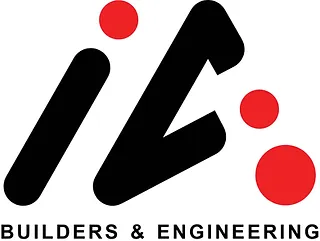When it comes to office reinstatement or renovation, hacking and demolition works play a crucial role, especially if you need to tear down walls, ceilings, or other fixtures. However, these tasks require proper planning, compliance with regulations, and experienced contractors to ensure safety. In this guide, we’ll walk you through the essentials of hacking and demolition for commercial spaces in Singapore.
What is Hacking and Demolition Work?
In the context of office spaces, hacking refers to the removal or dismantling of built-in elements such as walls, partitions, tiles, and fixtures. Demolition involves the complete teardown of larger structural elements, such as ceilings or entire rooms, to restore or rebuild a space.
These works are often necessary for office reinstatement when tenants need to restore the space to its original condition before handing it over to the landlord.
Types of Hacking and Demolition Works for Offices
- Wall and Partition Removal
- Tearing down non-load-bearing walls and partitions to return the office to its original open-plan layout.
- Ceiling and Flooring Removal
- Removing ceiling grids, tiles, or raised flooring to match the landlord’s specifications.
- Built-in Furniture and Fixtures
- Dismantling custom installations such as cabinets, desks, or display units.
- Mechanical and Electrical Systems
- Disconnecting and removing air-conditioning ducts, lighting systems, or wiring.
- Facade or Window Modifications (if applicable)
- Some offices may require the removal of signage or modifications to exterior facades.
Regulations for Hacking and Demolition in Singapore
In Singapore, hacking and demolition works must comply with Building and Construction Authority (BCA) regulations and workplace safety guidelines. Here are some key points to keep in mind:
- Permits and Approvals:
For large-scale demolition projects, you may need a permit from the BCA. It’s important to check if your landlord or building management requires approval for any hacking work. - Noise Control:
Noise restrictions apply during certain hours, especially for office spaces located in mixed-use buildings or near residential areas. - Workplace Safety:
Contractors must adhere to Workplace Safety and Health (WSH) guidelines to prevent accidents, including proper use of tools, protective gear, and fall prevention measures. - Waste Disposal:
All debris from hacking and demolition must be disposed of at government-approved waste facilities to meet environmental regulations.
How to Manage Hacking and Demolition Works Efficiently
- Plan Ahead:
- Coordinate with your landlord or building management to ensure compliance with building regulations.
- Schedule hacking and demolition during off-peak hours if possible to minimize disruption.
- Engage a Licensed Contractor:
- Choose contractors experienced with BCA guidelines and familiar with reinstatement projects to avoid delays or legal issues.
- Budget for Waste Disposal:
- Include disposal fees in your budget as all debris must be removed properly.
- Inspect for Hidden Services:
- Check for concealed electrical wiring or plumbing behind walls and ceilings before hacking to avoid accidents.
Common Mistakes to Avoid in Hacking and Demolition
- Starting Without Permits:
- Skipping approvals can lead to fines and project delays.
- Hiring Inexperienced Contractors:
- Poor workmanship can result in safety hazards or additional costs.
- Underestimating Noise Restrictions:
- Be aware of noise control rules to avoid complaints from neighbors or building management.
Conclusion
Hacking and demolition works are essential for office reinstatement and renovation, but they require careful planning, the right expertise, and compliance with Singapore’s regulations. By engaging experienced contractors and following best practices, you can ensure a smooth and efficient process.
Need help with your reinstatement project? Contact us today to get a free quote and let our expert team handle everything—from hacking and demolition to final handover.
This blog post offers practical advice while incorporating keywords such as “hacking works,” “demolition works,” and “Singapore office reinstatement” to improve SEO. Let me know if you’d like to proceed with the next one!
